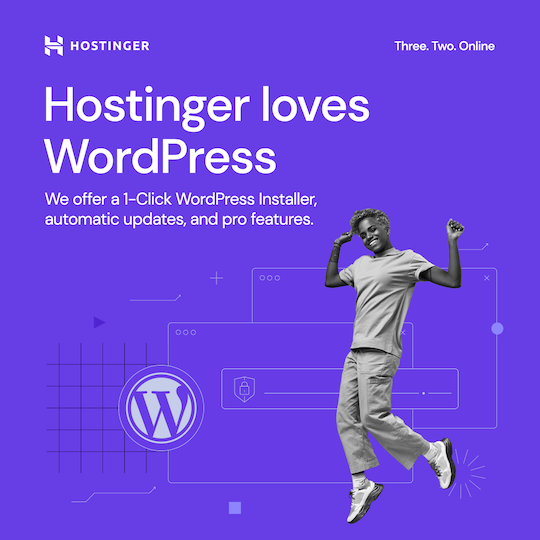While navigating the WordPress world can be empowering, efficient content management becomes more and more necessary as your online presence changes.
As a WordPress user, you may find yourself needing to delete pages from your website from time to time maybe to remove outdated content or streamline your site’s navigation.
In this simple guide, I am going to take you through the steps to delete a page or pages from your WordPress website to help you re-organize and optimize it to suit your purposes.
Deleting pages in WordPress is a simple process that can be done in just a few steps:
- Log into your WordPress admin area.
- Access the “Pages” menu.
- Select the page you want to delete.
- Click on the “Trash” option, and then from there you can choose whether to permanently delete the page, depending on your reasons.
Removing unnecessary pages can help keep your website clutter-free, improve user experience, and boost your site’s performance.
First, let’s get into the why before we look at the how.
Why delete pages in WordPress?
Deleting pages in WordPress can serve various purposes, and the decision to do so depends on specific needs and circumstances.
Here are some common reasons why someone might choose to delete pages in WordPress:
- Outdated Content: Over time, content on a website may become outdated or irrelevant.
Deleting pages with ancient information ensures that visitors receive accurate and up-to-date content. - Content Restructuring: As a website evolves, the structure and organization of content may need to change.
Deleting pages can be part of a broader strategy to reorganize information and improve the overall user experience. - Redundant or Duplicate Content: Duplicate or redundant pages can confuse visitors and negatively impact SEO.
Deleting such pages helps streamline your website and avoids potential issues with search engine rankings. - Site Cleanup: Regular site maintenance involves cleaning up unnecessary or unused elements.
Deleting unused pages contributes to a cleaner and more efficient website. - Rebranding: Businesses may shift their focus, rebrand, or change their offerings.
Deleting pages associated with old products, services, or branding ensures that the website aligns with the current business direction. - Security and Privacy: If a page contains sensitive information or poses a security risk, deleting it is a prudent measure to protect both the website owner and its visitors.
- Performance Optimization: Large websites with a significant number of pages can experience performance issues.
Deleting unnecessary pages can contribute to improved website speed and overall performance. - Limited Resources: For websites with limited storage or bandwidth, deleting unused or unnecessary pages can free up valuable resources.
- Legal or Compliance Requirements: Changes in legal requirements or compliance standards may necessitate the removal of certain pages to ensure the website adheres to current regulations.
- Testing and Development: During the testing and development phase of a website, temporary or placeholder pages may be created.
Once the site is live, these pages are typically deleted to avoid confusion.
Considerations Before Deleting Pages in WordPress
Before you go ahead and delete your page(s) in WordPress, here are a few important tips to keep in mind to help you make informed decisions and ensure that your website remains organized and optimized for search engines.
Consider Organic Traffic
Before deleting a page, it’s crucial to consider the organic traffic it is generating.
Is the page receiving a significant amount of traffic that is currently contributing to your website’s ranking? If yes, you may want to keep the page.
You can use tools like Google Analytics to determine the amount of traffic and the keywords that are driving visitors to the page.
Check for External Links
Another important factor to consider is external links. Are there any external links pointing to the page you want to delete?
If reputable websites are linking to the page, removing it could negatively impact your website’s SEO because external links play a big role in your website’s authority and search engine rankings.
Consider redirecting the page to a relevant alternative or updating the content to retain the value of those external links.
Utilize the Trash Feature
WordPress provides a built-in safety net; the Trash, which allows you to restore a page if needed.
Before permanently deleting pages, consider simply leaving them in the trash until you are sure they are completely ineffectual to your website.
That way, there is a way to recover them if necessary or if you decide you need them.
Now let’s go ahead and delete pages…
How to Edit and Delete Pages in WordPress
You can use the WordPress delete option to delete either a single page or perform a bulk delete if you prefer.
Here are the steps you need to take to achieve this:
Tip:
Consider backing up your site before deleting pages (or making any other significant changes, on your WordPress website) . This ensures you have a safety net in case anything goes wrong.
Delete a single Page in WordPress
If you need to delete one page from your WordPress website, the process is just as straightforward.
Start by logging into your WordPress dashboard and accessing the Pages menu (Pages > All Pages).
Find the page you want to delete and when you hover over it, you will see several options including Trash.

Click on the “Trash” option and the page will be moved to the trash, where it will be stored temporarily.
To permanently delete the page, navigate to the Trash section and click on the Delete Permanently option.

Or you can simply Empty the trash.
delete multiple pages in WordPress
WordPress provides a convenient feature for bulk deleting pages, making it easier to manage a large number of pages on your website.
Using the bulk editing function, you can select multiple pages at once and apply bulk actions such as editing or deleting.
This is especially useful when you have a significant number of pages to manage and want to make changes to common fields across all selected pages.
To delete more than one page:
On your WordPress dashboard go to Pages > All pages and select all the pages you would like to delete then at the top, click the dropdown menu on Bulk action and select Move to Trash, then click Apply.


Note: Deleting a page is irreversible, so be cautious when deleting pages from your WordPress site.
If you delete a page unintentionally, you can recover it from the trash before it is permanently deleted.
how to recover deleted WordPress page(s)
If you change your mind about a deleted or trashed page, you can use the WordPress Restore feature.
Simply navigate to your Trash, hover over the page you want to restore or select multiple pages to restore then click Restore.

FAQs
How do I edit pages in WordPress?
To edit pages in WordPress, go to the Pages section on your dashboard and select the page you want to edit by simply clicking on it, or you can hover over it and click Edit…
Make changes to the page title, permalink, and content as desired. Click the Update button to save your changes.
Does deleting a page affect my site’s SEO?
Yes, if the page has external links or is indexed by search engines, deleting pages will impact SEO.
Consider setting up redirects or informing search engines through tools like Google Search Console to mitigate potential SEO consequences.
Can I delete default pages like “Home” or “About Us”?
Pages like Home and About Us are default pages and you need to exercise caution when deleting them. They often serve critical functions.
Instead of deleting, consider modifying or unpublishing default pages to avoid disrupting your site’s functionality.
What happens if I delete a page that has backlinks from other websites?
Deleting a page with backlinks can lead to broken links and negatively impact your site’s SEO.
Use a broken link checker plugin or the Google Search Console to identify broken links.
And consider setting up 301 redirects to guide users and search engines to relevant content.
Can I delete pages in WordPress without affecting my site’s menu?
Deleting a page won’t automatically remove it from your site’s menu.
After deleting a page, review and update your menus to maintain a cohesive navigation structure.
Can I delete a page and replace it with a new one with the same URL?
Yes, you can delete a page and create a new one with the same URL.
However, keep in mind that doing so may affect SEO, especially if the old page had existing backlinks.
Can I delete a parent page without affecting its child pages?
Yes, you can delete a parent page without directly affecting its child pages.
However, the child pages may become “orphaned,” so you will need to reassign them to another parent page or make them stand-alone pages if needed.
Conclusion
Deleting pages in WordPress is a simple and effective way to maintain a clean and organized website and a valuable tool for improving site management.
So, follow these tips and tools to delete pages in WordPress and optimize your website for a streamlined and organized online presence.
Remember to consider the value of the page’s traffic and external links before deleting any page.
And remember that you can always temporarily use the Trash feature until you’re sure you don’t need them anymore.



